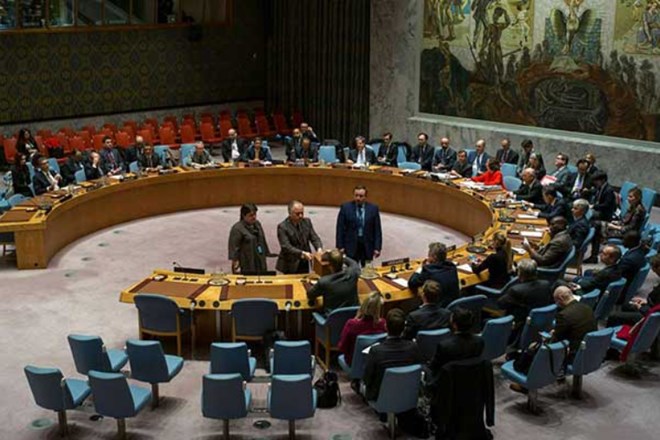

The Djiboutian government on Thursday appeared to rescind its earlier decision to respect the African Union’s vote to endorse Kenya’s candidature for the UN Security Council seat, signalling lack of faith in a process it took part in three times.
Djibouti’s Permanent Representative to the UN Mohamed Siad Doualeh said his country will continue to vie for the non-permanent seat, by taking the campaign directly to the UN member states.
“Djibouti reaffirms its decision to continue its bid to secure a seat at the Security Council for the period 2021-2022. We thank all UN member states that have formally expressed to support Djibouti,” the envoy tweeted, contradicting his colleagues in Addis Ababa.
The contest between Djibouti and Kenya, both members of regional bloc Igad, reached the African Union vote after the two failed to agree by consensus who should be Africa’s candidate.
In the secret ballot on Wednesday in Addis Ababa, Kenya scored 37 votes against Djibouti’s 13.
The vote was reached in the second round after Nairobi had defeated Djibouti 34-15 with two abstentions in the first round.
Kenya had defeated Djibouti three weeks earlier but failed to garner the two-thirds majority required.
Conceded
On Wednesday, Djibouti’s ambassador to the African Union Mohammed Idris Farah said his country conceded defeat and congratulated Nairobi for the victory.
The about-turn announced by his colleague in New York means Djibouti does not believe in working through the AU, despite agreeing so in public.
In January, Djibouti was among the 55 member states that agreed on an item in the communique of the AU Assembly of States Parties, endorsing a decision for the continental body to be fronting candidates “to act in its name and on its behalf.”
This means that while the African Union itself has no vote at the UN, its member states had signed on a deal to vote for candidates the continental body endorses.
According to the rules of procedure at the UN General Assembly, winners for the non-permanent seat must garner at least two thirds of the votes of the member states.
As a result, Kenya needs at least 129 votes when the election for the seat is held next year in June.
While the endorsement often guarantees a candidate the win, failure to garner two thirds majority in the first round could reopen the race to another challenger from the region.
TheEASAfrican
more recommended stories
 Somaliland’s Berbera Industrial Park: A New Era of Investment and Job Creation
Somaliland’s Berbera Industrial Park: A New Era of Investment and Job CreationThe Government of Somaliland, under the.
 President Irro’s Landmark Visit to UAE: A Diplomatic and Economic Win for Somaliland. Dubai, UAE – Somaliland’s Diplomatic Breakthrough
President Irro’s Landmark Visit to UAE: A Diplomatic and Economic Win for Somaliland. Dubai, UAE – Somaliland’s Diplomatic BreakthroughBy: Abdi Jama President Dr. Abdirahman.
 Kenya’s Unjustifiable Interference in Sudan: A Grave Violation of International Law and Regional Stability
Kenya’s Unjustifiable Interference in Sudan: A Grave Violation of International Law and Regional StabilityBy: Abdi Jama Kenya’s continued meddling.
 𝗙𝗼𝗿𝗺𝗲𝗿 𝗣𝗿𝗲𝘀𝗶𝗱𝗲𝗻𝘁 𝗠𝘂𝘀𝗲 𝗕𝗶𝗵𝗶’𝘀 𝗥𝗲𝗰𝗸𝗹𝗲𝘀𝘀 𝗔𝗰𝘁𝗶𝗼𝗻𝘀 𝗠𝘂𝘀𝘁 𝗡𝗼𝘁 𝗕𝗲 𝗜𝗴𝗻𝗼𝗿𝗲𝗱 – Abdihalim Musa
𝗙𝗼𝗿𝗺𝗲𝗿 𝗣𝗿𝗲𝘀𝗶𝗱𝗲𝗻𝘁 𝗠𝘂𝘀𝗲 𝗕𝗶𝗵𝗶’𝘀 𝗥𝗲𝗰𝗸𝗹𝗲𝘀𝘀 𝗔𝗰𝘁𝗶𝗼𝗻𝘀 𝗠𝘂𝘀𝘁 𝗡𝗼𝘁 𝗕𝗲 𝗜𝗴𝗻𝗼𝗿𝗲𝗱 – Abdihalim MusaYesterday, Somaliland witnessed a deeply troubling.

